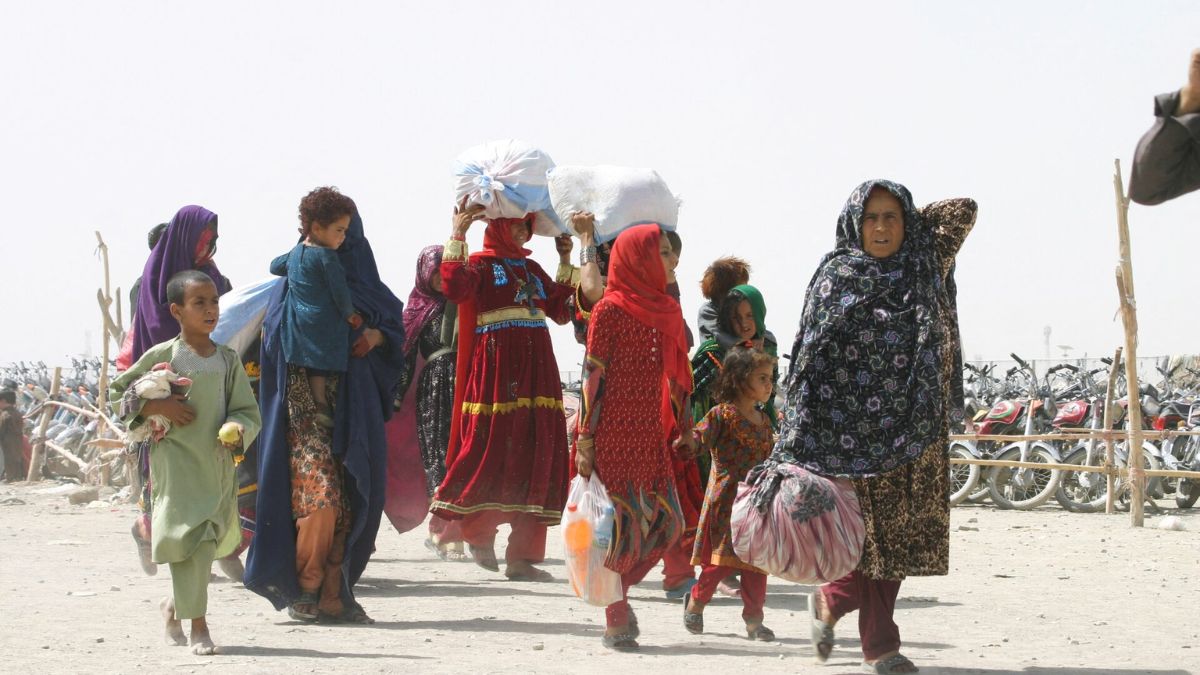Even as they mark the festival of Eid, the rift between Afghans and Pakistanis is set to widen today.
As the deadline of March 31 for Afghan refugees to leave the country has come, Pakistani authorities are set to mount nationwide efforts in the coming days to deport nearly 3 million Afghan residents who fled war and persecution in their homeland over the decades.
This is latest chapter in Pakistan’s crackdown on Afghan refugees that first began in November 2023. In the two phases of crackdown, Pakistan has so far expelled 840,000 Afghans into Afghanistan where they face an uncertain future amid fears of persecution at the hands of the Taliban regime.
Following the Taliban’s takeover of Afghanistan in 2021, hundreds of thousands of Afghans, includes activists, journalists, and members of the now-toppled Western-backed Afghan government and military, took refuge in Pakistan. Upon expulsion into Afghanistan, they face the risk of persecution by the Taliban, particularly women and gender rights activists, as the Taliban has essentially erased women from public view after banning them from education and work opportunities.
Pakistan to expel 3 million Afghans
Pakistan had set multiple deadlines for various classes of Afghan refugees for leaving the country.
Around 800,000 Afghans who fled to Pakistan without valid papers after the Taliban takeover of the country were supposed to leave the country by March 31.
Their arrests and deportations were scheduled to start April 1, but have been postponed to April 10 because of Eid holidays, according to The Associated Press.
Another 1.4 million Afghans who are formally registered with the Pakistan government and hold a Proof of Residence card issued by the UN refugee agency (UNHCR) have to leave for Afghanistan by June 30, according to RFE/RL.
The outlet further reported that around 40,000 Afghans awaiting resettlement in Western countries have to leave by June 30 or face deportation to Afghanistan.
Authorities wanted Afghan Citizen cardholders to leave the capital Islamabad and Rawalpindi city by March 31 and return to Afghanistan voluntarily or be deported.
Separately, around 800,000 refugees with Afghan Citizen Cards (ACC) had the deadline to leave the capital Islamabad and Rawalpindi city by March 31 and return to Afghanistan voluntarily or face deportation, according to AP.
Hina, 25, who lives in Peshawar, told RFE/RL that her family’s plans to settle in the United States have been shattered as a result of US President Donald Trump temporarily suspending US Refugee Admissions Program (USRAP) and Pakistan forcing deportation upong them. She said that her family had even booked tickets for the United States but they now face deportation to Afghanistan.
“We are left in a deep despair. Our dreams of building a safe future [in the United States] have been shattered. We can’t return to Afghanistan where our lives will be at risk, nor can we build a stable life in Pakistan,” said Hina.
Women rights activists face persecution upon deportation
Among those set to be expelled to Afghanistan are more than 50 prominent women’s rights activists who fled to Pakistan after Afghanistan’s takeover by the Taliban, according to Guardian.
Upon their forced return to the Taliban, they face persecution, imprisonment, and possible even death.
Humaira Alim, who worked as a women’s rights and education activist in Afghanistan for seven years, fled the country when Taliban’s took over. She told the newspaper that she fled in December 2022 after facing “dire warnings” and direct threats to her life from the Taliban.
Now, Alim is at the risk of being thrown into that fearful place again — thanks to Pakistan’s expulsion programme.
“If they send me back to Afghanistan, it only means death. The Taliban have records on me and my activism. There is no place for women like me. They only arrest and torture us. I can’t go back there with my children,” said Alim.


)
)
)
)
)
)
)
)
)



